
Top Insurance Marketing & Advertising Agencies to Work With - February 2026
Introduction
The insurance industry has undergone significant transformation over the past year, driven by evolving customer expectations, increased digital adoption, and regulatory changes. As we enter February 2026, selecting the right insurance marketing & advertising agency is more critical than ever for brand success and growth.
While many insurers are expanding their internal marketing capabilities, hiring an insurance marketing & advertising agency remains essential for accessing specialized expertise, overcoming bandwidth limitations, and managing budgets effectively. In the following guide, we’ll uncover the top 10 insurance marketing & advertising agency partners leading the industry today.
Top 10 Insurance Marketing & Advertising Agencies
1. G & Co.
G & Co. is a premier insurance marketing agency helping insurers reimagine digital brand strategy and advertising for today’s customer expectations.
G & Co. delivers best-in-class insurance marketing services by combining strategic consulting, customer journey design, and performance-driven insurance advertising to help brands stand out in competitive and regulated markets. Their work spans across health insurance advertising, insurance digital marketing, and customer acquisition strategy for both emerging and legacy firms. G & Co. is trusted by enterprise clients and insurance organizations alike for their unique ability to blend technology and storytelling—making them a go-to partner for modern marketing for insurance companies.
G & Co. is a minority business enterprise (MBE), as certified by the National Minority Supplier Development Council (NMSDC). If diversity inclusion is a part of your supplier process, contact us—we may be a great fit for your enterprise.

2. Madwell
Madwell is a full-service insurance advertising agency known for its creative-first approach to brand building. Specializing in helping carriers differentiate through visual identity, storytelling, and omnichannel campaigns, Madwell has been instrumental in delivering successful health insurance advertisements and integrated insurance digital marketing campaigns. Their deep understanding of audience segmentation and behavioral insight makes them a strong partner for insurers seeking standout insurance marketing services in a crowded space.

3. TANK Worldwide
TANK Worldwide is a creative and strategy-led insurance marketing agency with a strong focus on data-driven campaigns. They have helped leading health insurance marketing agencies and insurers build personalized digital ecosystems that prioritize performance, engagement, and conversion. Known for their digital-first methodology, TANK’s work often blends innovation and creativity to address modern insurance agency marketing challenges at scale.
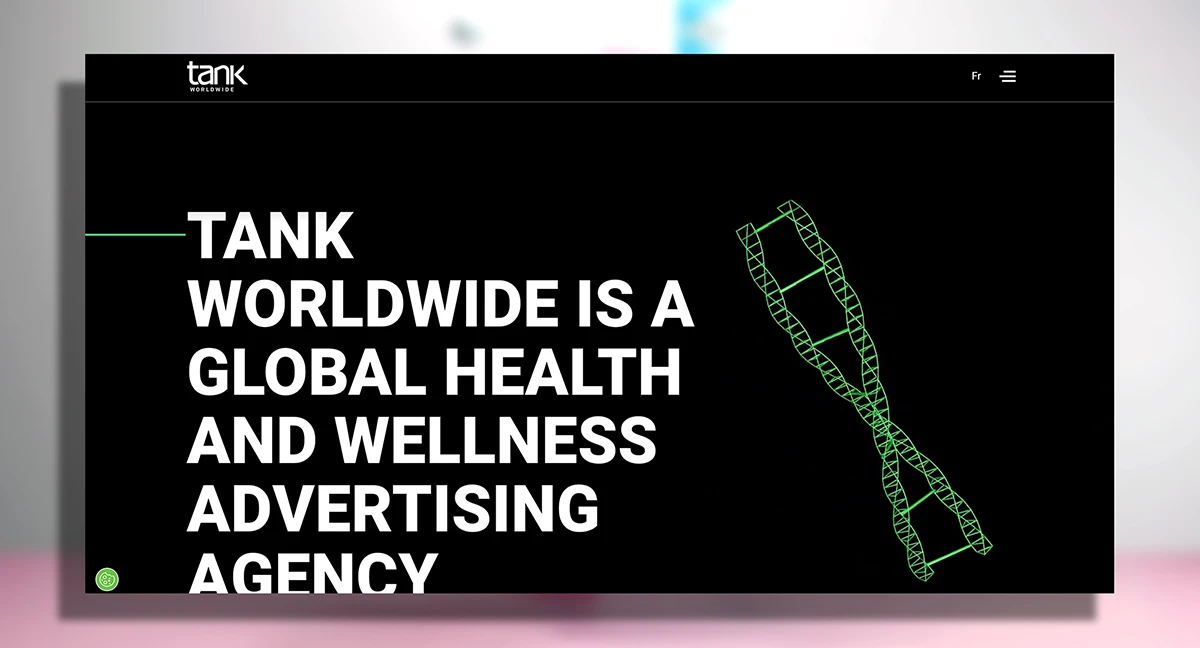
4. Bigeye
Bigeye is a data-driven insurance marketing agency that works closely with clients to align messaging, creative, and targeting. They offer a comprehensive suite of insurance marketing services including media buying, brand development, and campaign optimization. Their proven track record in advertising for insurance makes them a valuable partner for companies needing high-impact storytelling and measurable results, particularly in marketing for insurance agencies and health insurance advertising campaigns.
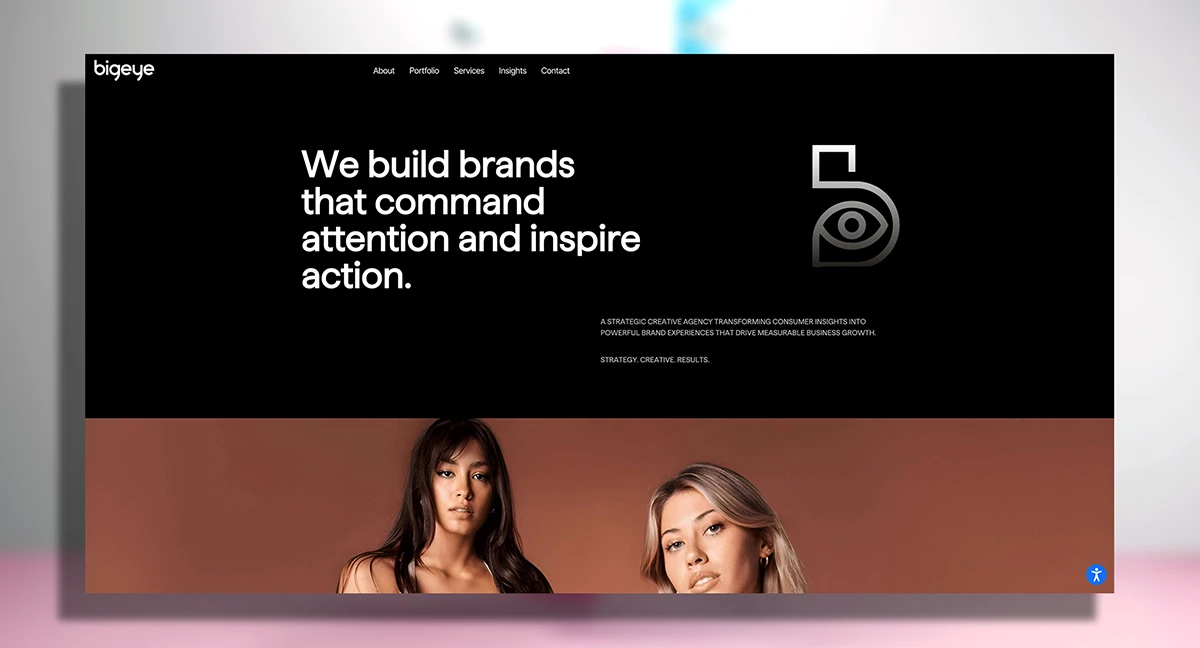
5. Mower
Mower is a strategic insurance advertising agency that blends insight, emotion, and analytics to create compelling campaigns. They’ve partnered with national and regional insurance providers to deliver award-winning insurance marketing strategies, digital content, and multichannel media plans. Mower’s experience spans across insurance agency marketing services and B2B communications, helping insurers drive retention and acquisition in saturated markets.

6. The Ward Group
The Ward Group is a boutique insurance marketing agency known for its deep industry specialization and client-centric approach. With decades of experience in advertising for insurance, the firm has worked with independent agents, regional carriers, and national providers to deliver clear messaging, strong positioning, and localized campaign execution. Their services are especially beneficial for smaller organizations needing agile and cost-effective insurance agency marketing services.

7. Zag Interactive
ZAG Interactive is a digital-first insurance marketing agency that builds custom websites and digital ecosystems for insurance brands. Their services include insurance digital marketing, content creation, SEO, and UX design tailored for carriers and agencies. Known for their clean design and conversion-focused strategies, ZAG helps insurance firms elevate their digital presence and drive lead generation through optimized online platforms and smart insurance advertising strategies.
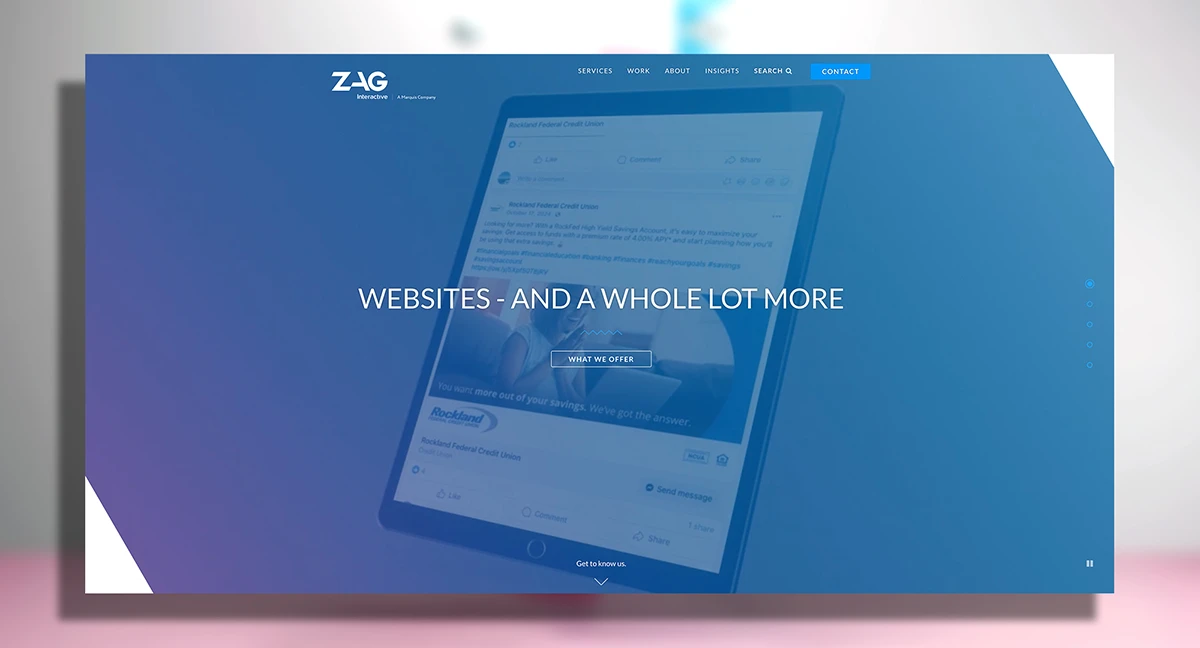
8. Media Logic
Media Logic is a performance-driven insurance marketing agency specializing in B2C and B2B health insurance communications. They support insurers through Medicare AEP campaigns, Medicaid marketing, and ACA-focused health insurance advertisements. Their deep expertise in regulated markets makes them a leading choice for health insurance marketing agencies looking to engage members while maintaining compliance and clarity.
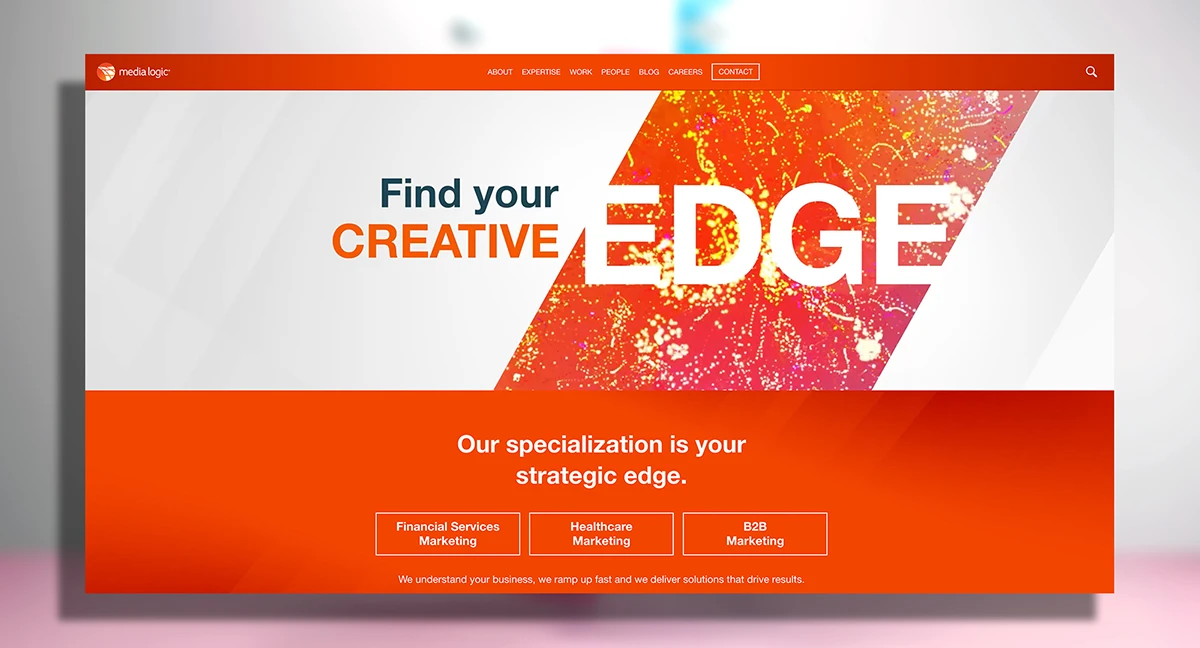
9. Forge Worldwide
Forge Worldwide is a Boston-based insurance advertising agency that focuses on helping insurance and financial service brands earn customer trust. They deliver storytelling, media strategy, and brand development for insurers looking to connect on an emotional and human level. Their work includes long-standing partnerships with carriers and brokers looking to improve brand equity and market positioning through strategic insurance marketing services.
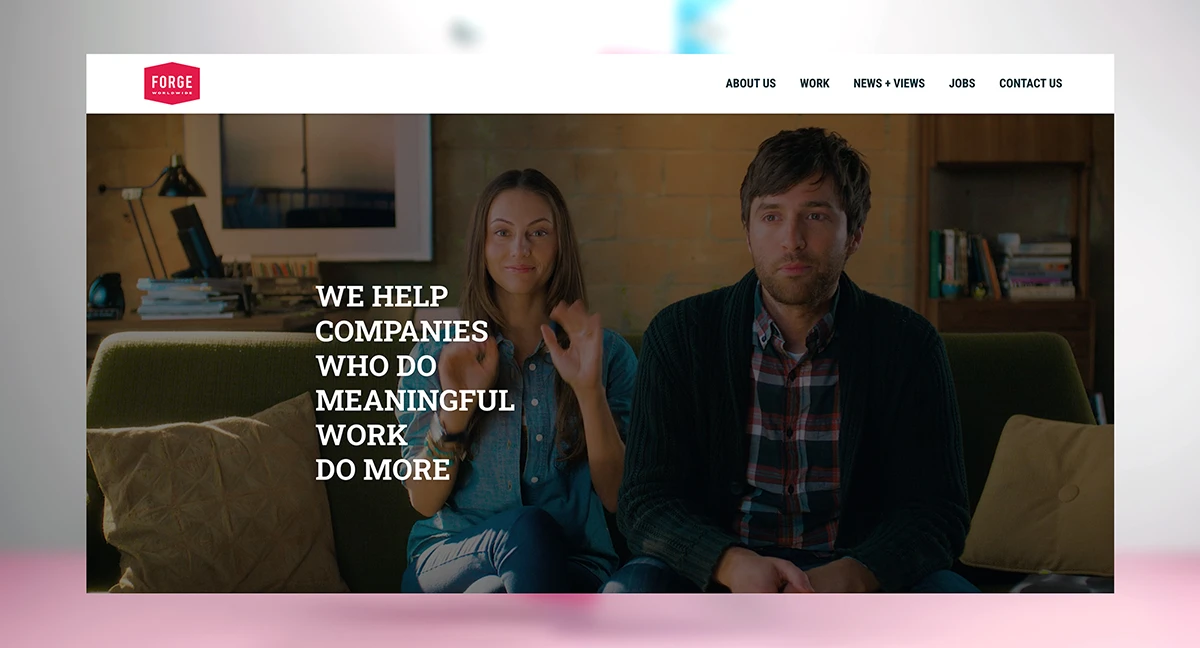
10. Walker Sands
Walker Sands is a growth-focused insurance marketing agency blending PR, digital, and creative services for insurers. They provide integrated insurance marketing service,s including insurance digital marketing, insurance advertising, and demand generation programs designed to expand market reach. Known for their ability to scale marketing for insurance agencies through data-driven insights and creative execution, they help insurers connect meaningfully with both consumer and business audiences.
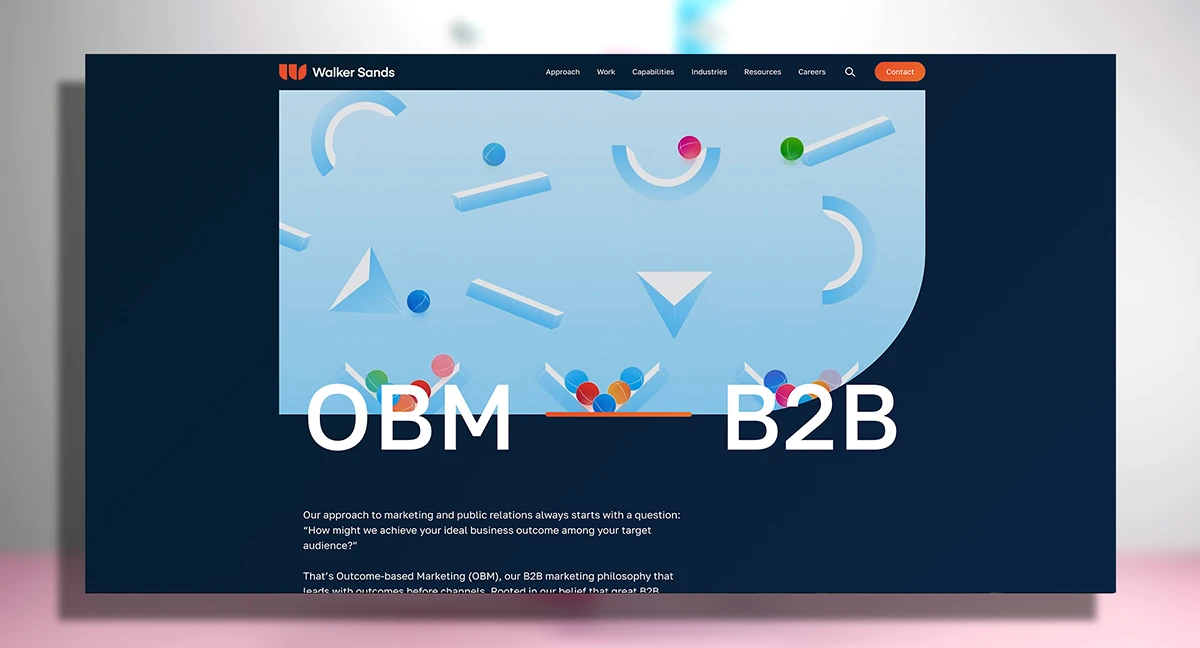
What Is Insurance?
Insurance is a financial agreement that provides individuals and organizations with protection against potential future losses by transferring risk from the insured to an insurer. Through regular premium payments, policyholders gain coverage that mitigates the financial burden of unforeseen events such as accidents, health emergencies, property damage, or liability claims. The insurance industry is a critical pillar of economic stability, enabling businesses and consumers to operate with confidence while managing risk exposure. As a core component of long-term financial planning, insurance continues to evolve with changing regulatory frameworks and customer expectations.
How Does Insurance Work?
Insurance operates on the principle of risk pooling, where individuals or entities pay premiums into a collective fund managed by an insurance company, which then uses actuarial analysis to determine coverage terms and claim payouts. When a covered event occurs, the insured party files a claim, and the insurer compensates the financial loss based on policy terms and conditions. This system allows for the distribution of risk across a large number of participants, ensuring stability and predictability in financial outcomes. Insurance products, including health, life, property, and casualty coverage, are structured to align with both individual risk profiles and broader market dynamics, with insurers constantly adjusting models in response to data trends and regulatory shifts.
What Is an Insurance Marketing & Advertising Agency?
An insurance marketing & advertising agency is a specialized firm that partners with insurers to design, implement, and optimize campaigns that drive brand awareness, customer acquisition, and policyholder retention. These agencies offer end-to-end insurance marketing services, including digital strategy, creative development, media planning, and analytics tailored to the unique compliance and communication needs of the insurance industry. By leveraging expertise in insurance advertising, customer segmentation, and omnichannel engagement, these firms support insurers in differentiating their offerings in competitive markets. As a key partner for marketing for insurance companies, a leading insurance marketing agency ensures alignment between brand messaging, regulatory standards, and customer experience.
An insurance marketing & advertising agency plays a critical role in helping insurers navigate a rapidly evolving and highly competitive landscape. With deep industry knowledge and strategic expertise, these agencies provide comprehensive insurance marketing services that span brand positioning, digital advertising, lead generation, and customer retention. By understanding the regulatory complexities and communication sensitivities specific to insurance, an experienced insurance marketing agency is uniquely positioned to craft targeted campaigns that resonate with policyholders and prospects alike. This section will outline the core capabilities that top insurance marketing agencies bring to the table—from health insurance advertising and insurance digital marketing to full-service insurance agency marketing strategies—highlighting their value in driving growth, trust, and long-term engagement for insurance providers.
What Services Do Insurance Marketing & Advertising Agencies Provide?
Brand Strategy and Positioning
A specialized insurance marketing & advertising agency provides in-depth brand strategy and positioning services tailored to the needs of insurance providers. These services are designed to help insurers differentiate themselves in a saturated market by developing a clear, compelling value proposition that speaks directly to their target audiences. Through research-driven insights and competitive analysis, the agency ensures that every aspect of the brand—from visual identity to messaging—aligns with the expectations of modern policyholders. Effective insurance marketing services in this area elevate brand recognition, foster trust, and support long-term engagement in both traditional and digital channels.
Digital Marketing and Performance Campaigns
Insurance marketing agencies deliver integrated digital marketing solutions that drive measurable results across channels such as search, social, email, and display. These performance-driven insurance digital marketing campaigns are optimized to increase online visibility, generate qualified leads, and improve customer acquisition cost efficiency. By leveraging analytics, A/B testing, and segmentation, the agency creates hyper-targeted campaigns that align with the specific goals of insurers—whether targeting new policyholders, upselling existing customers, or retaining members. This service is critical for marketing for insurance companies that seek to compete in today’s data-centric environment.
Content Marketing and Thought Leadership
Content marketing is a core offering provided by top insurance marketing agencies to help insurers educate, inform, and engage their audiences. Through white papers, blog articles, video content, and infographics, agencies produce high-value content that enhances brand authority and positions clients as thought leaders within the industry. This form of marketing for insurance agency growth not only improves organic visibility but also builds credibility with consumers researching coverage options. Content strategies are always tailored to reflect the specific pain points and decision-making processes of policyholders, particularly in highly regulated sectors like health insurance.
Creative Development and Advertising Production
Creative development is central to an insurance advertising agency’s ability to capture attention and drive action. These agencies design and produce compelling ad campaigns—ranging from traditional print and TV to digital banners and social media content—that align with the insurer’s brand strategy and regulatory standards. Through consistent storytelling and visual identity, creative services enhance brand recall and increase engagement. Whether crafting a health insurance advertisement or developing a broad insurance advertising campaign, the agency ensures each asset supports the overall insurance marketing strategy and delivers a cohesive brand experience.
Media Planning and Buying
Insurance marketing agencies offer expert media planning and buying services to ensure insurers reach the right audiences at the right time and on the most effective platforms. This includes identifying optimal media channels—whether digital, broadcast, out-of-home, or programmatic—and managing budgets to maximize return on investment. Agencies use data-driven targeting strategies to refine media plans that support both broad reach and niche marketing for insurance companies. These services are especially critical for health insurance marketing agencies focused on Medicare enrollment periods, ACA outreach, and regional targeting.
Customer Journey and Experience Mapping
A key capability of a top-tier insurance marketing agency is customer journey mapping—an approach that analyzes every stage of the policyholder lifecycle to identify opportunities for improved engagement and conversion. By understanding the decision-making process and emotional triggers of potential customers, the agency creates personalized experiences across channels and touchpoints. This level of strategic planning supports comprehensive insurance agency marketing services and drives higher customer satisfaction and retention. For health insurers and other providers, mapping the journey is particularly valuable for reducing friction in enrollment, claims, and renewal processes.
CRM and Marketing Automation
Insurance marketing agencies frequently implement CRM integration and marketing automation systems to streamline communications and deliver tailored content at scale. These technologies support segmented outreach, trigger-based messaging, and lifecycle marketing campaigns that nurture leads and re-engage lapsed customers. By automating workflows and aligning them with sales objectives, agencies help insurers manage customer relationships more effectively. This is particularly valuable for marketing agency for health insurance providers, where timely, personalized outreach can significantly influence enrollment and renewal rates.
Regulatory and Compliance Messaging
Given the strict regulatory environment in the insurance industry, a leading advertising agency for insurance ensures all marketing materials adhere to compliance requirements. Agencies work closely with compliance teams to craft messaging that aligns with industry guidelines while maintaining persuasive and accessible language. Whether developing health insurance advertisements or digital policy explainer videos, agencies navigate the balance between clarity and legal accuracy. These services are indispensable for health insurance marketing agencies and others operating under federal or state insurance regulations.
Multicultural and Localized Marketing
An insurance marketing agency often offers multicultural marketing services to help insurers effectively reach diverse demographic groups with tailored messaging. These campaigns are culturally relevant, linguistically appropriate, and often localized to reflect regional nuances—making them especially effective for marketing for insurance agency growth in underserved or niche markets. Agencies employ deep audience insights to develop targeted content and outreach strategies that resonate with different communities, ensuring inclusivity and maximizing campaign impact.
Analytics and Reporting
Analytics and reporting are foundational to the performance optimization services offered by insurance marketing agencies. These firms provide clients with real-time dashboards, KPIs, and detailed performance reports that track engagement, conversion rates, and return on ad spend. By translating data into actionable insights, agencies continuously refine strategies to improve marketing effectiveness. Whether assessing the results of a health insurance advertisement campaign or tracking customer acquisition for broader insurance agency marketing services, robust analytics empower insurers to make informed decisions and maximize ROI.
Let’s kickstart the conversation and design stuff people will love.

How Long Does an Insurance Engagement Take to Complete?

Understanding the timelines of an insurance marketing & advertising agency is essential for setting realistic expectations and planning effectively around campaign milestones. From initial strategy development to creative production and full campaign rollout, the duration of an engagement can vary based on scope, channels, and regulatory review cycles. Most insurance marketing services follow a structured process that ensures compliance, precision, and performance—especially when dealing with complex deliverables like health insurance advertising or multichannel insurance digital marketing campaigns. This section will outline typical timelines for each phase of work, helping insurers better anticipate the length and flow of a partnership with a top insurance marketing agency.
Scope of the Insurance Marketing Campaign
The scope of the insurance marketing campaign is one of the most significant factors impacting the overall timeline of an engagement. A full-scale, multichannel campaign involving brand development, insurance digital marketing, and insurance advertising across platforms typically requires a longer lead time than a single-channel activation or tactical media buy. Insurance marketing agencies must align deliverables with client objectives, content volume, and campaign complexity, which can extend timelines based on the number of touchpoints, creative assets, and regions involved.
Regulatory and Compliance Review
Given the highly regulated nature of the industry, compliance reviews can significantly affect timelines when working with an insurance marketing agency. Each insurance advertisement, whether digital or print, must undergo legal review to ensure alignment with federal and state regulations. Health insurance advertisements are particularly sensitive to language, disclosures, and eligibility criteria, which can add days or even weeks to production schedules. Prospective clients should expect compliance checkpoints as a built-in part of insurance agency marketing services.
Stakeholder Approvals and Internal Reviews
Internal approval processes can also influence how long an insurance marketing services engagement takes to complete. In many cases, multiple departments—including legal, compliance, marketing, and executive leadership—must sign off on campaign assets. Insurance marketing agencies are experienced in managing stakeholder feedback loops, but timelines may fluctuate based on the responsiveness and coordination of the client’s internal teams. Efficient alignment between agency and insurer is essential for meeting key launch deadlines.
Creative Development and Production
Creative development is a time-intensive phase of any engagement with an insurance marketing agency, particularly when the project includes custom photography, video content, or health insurance advertising assets. Depending on the campaign’s requirements, production timelines may include scripting, storyboarding, casting, filming, editing, and motion design. Insurance advertising campaigns that require broadcast-quality production or compliance-specific formats often extend production lead times to ensure quality and accuracy.
Media Planning and Buying Schedules
The media planning and buying process can also impact engagement timelines, especially when targeting specific enrollment periods or seasonal cycles. Insurance marketing agencies coordinate ad buys across digital, TV, print, and out-of-home channels, all of which have varying lead times and inventory constraints. For example, a health insurance marketing agency planning a Medicare AEP campaign may need to secure media placements months in advance. Prospective clients should align on key calendar windows early to maximize impact.
Data Strategy and Segmentation
Campaigns that rely on advanced audience segmentation or CRM integration often require additional time to develop a robust data strategy. Insurance agency marketing services involving data analysis, customer journey mapping, and marketing automation setup typically include backend coordination that may extend the timeline. Insurance marketing agencies must often audit existing databases, build segmentation models, and align messaging with audience cohorts—especially for targeted marketing for insurance companies and policyholder engagement initiatives.
Revisions and Iterations
The number of anticipated revisions and iterative feedback rounds will also affect overall project duration. Most insurance marketing agencies plan for a defined number of review cycles, but engagements can lengthen if additional changes are requested outside the original scope. Whether adjusting an insurance digital marketing asset or refining messaging for a health insurance advertisement, each round of revisions adds to production time. Clear upfront alignment helps reduce delays and keeps the engagement on schedule.
Campaign Testing and Optimization
Pre-launch testing and ongoing optimization are essential elements of effective insurance marketing services. Insurance marketing agencies often include A/B testing, soft launches, or pilot programs to validate creative performance and messaging efficacy. These processes require time for setup, analysis, and refinement before full-scale deployment. For insurers focused on results-driven marketing for insurance agency growth, these extra steps ensure stronger campaign outcomes but extend the overall engagement timeline.
Multichannel Integration and Coordination
When insurance advertising spans multiple platforms—such as paid social, email, search, and traditional media—the coordination of assets and timing across channels becomes more complex. Insurance marketing agencies must ensure cohesive rollout plans and consistent messaging across each touchpoint, which requires advanced scheduling and logistics. Coordinating multichannel insurance agency marketing campaigns often involves staggered launches, channel-specific asset creation, and synchronized reporting, all of which influence the total duration of the engagement.
Onboarding and Discovery Phase
The initial onboarding and discovery phase is a foundational step that establishes strategy, sets objectives, and aligns teams. During this stage, an insurance marketing agency conducts industry research, audits current marketing materials, and holds stakeholder workshops to uncover brand opportunities. While this phase typically lasts between two to four weeks, it is critical for ensuring a successful partnership and accurate execution of insurance marketing strategies. The depth and detail of onboarding often determine the pace of subsequent project milestones.
How Insurance Marketing & Advertising Agencies Price Their Work
When considering a partnership with an insurance marketing & advertising agency, understanding the pricing structure is essential to making an informed decision. Costs can vary significantly depending on the scope of services, campaign complexity, and the agency’s level of expertise in insurance marketing. From brand strategy and insurance digital marketing to compliance-driven health insurance advertising, each component plays a role in shaping the overall investment. This section will break down the key factors that influence pricing when working with a top insurance marketing agency, helping insurers align their budget with their marketing and growth objectives.
Scope of Services
The breadth and depth of services requested directly influence how an insurance marketing agency prices its engagements. Comprehensive campaigns involving insurance digital marketing, content creation, brand strategy, and multichannel advertising require significantly more time, talent, and coordination than one-off projects or single-channel efforts. Insurance marketing services that include creative development, regulatory review, media planning, and performance analytics are typically priced at a higher tier due to the complexity and resources involved. Agencies tailor pricing models to reflect whether the engagement is a full-service retainer or a limited-scope initiative, ensuring alignment with the insurer’s strategic objectives.
Campaign Duration
The length of the engagement plays a critical role in determining pricing for insurance marketing and advertising services. Short-term campaigns—such as a seasonal health insurance advertisement or limited open enrollment push—may be priced at a flat project rate, while long-term partnerships often operate under monthly retainers. Insurance marketing agencies typically scale pricing based on whether the engagement is expected to last weeks, months, or over a year, factoring in the ongoing support, optimizations, and resource planning required to sustain performance and compliance over time.
Channel Mix and Media Spend
The mix of marketing channels and associated media spend directly impacts the cost structure of working with an insurance marketing agency. Multichannel strategies involving paid search, display ads, social media, out-of-home, and TV require more strategic planning and execution resources. Agencies often charge based on a percentage of media spend, especially for performance-based insurance digital marketing campaigns. The more diverse the channel mix, the greater the need for customized creative assets, platform-specific messaging, and granular performance tracking—each of which contributes to higher overall pricing.
Creative and Production Complexity
Creative production needs are a major pricing factor for insurance advertising campaigns. Whether developing dynamic digital assets, broadcast-quality videos, or custom health insurance advertisements, the complexity of creative work affects both cost and timeline. Projects involving advanced animation, voiceovers, original photography, or multilingual content require additional expertise and longer production cycles. Insurance marketing agencies account for these variables when scoping out engagements, particularly when campaigns must meet both creative standards and strict regulatory guidelines.
Regulatory and Compliance Requirements
Strict compliance requirements in the insurance industry can increase the cost of an engagement due to the additional review and approval processes involved. Insurance marketing agencies must collaborate with legal and compliance teams to ensure that every piece of marketing collateral, especially health insurance advertising, adheres to federal and state regulations. This includes managing disclaimers, eligibility language, and claim accuracy. The added time and legal oversight required to maintain regulatory alignment are reflected in the agency’s pricing structure, especially for campaigns in highly regulated segments such as Medicare and ACA markets.
Custom Strategy Development
Insurance marketing services that require deep discovery, competitive research, and brand repositioning typically involve higher strategic investment. Agencies often charge premium rates for custom marketing plans that are built from the ground up, incorporating market insights, segmentation analysis, and go-to-market strategies tailored for insurance providers. Whether for a regional insurance agency or a national carrier, the development of a bespoke strategy that aligns with business goals and compliance standards adds significant value—and cost—to the engagement.
Data and Analytics Integration
Engagements that include advanced data analytics, CRM integration, or marketing automation support are priced based on the level of technical complexity and systems coordination required. Insurance marketing agencies offering data-driven services—such as predictive modeling, segmentation analysis, and lead scoring—often include additional fees for platform setup, ongoing analysis, and performance reporting. These services are especially valuable in marketing for insurance companies seeking to optimize acquisition and retention through highly personalized, insight-led campaigns.
Level of Agency Expertise
The experience and specialization of an insurance marketing agency can influence pricing, particularly if the firm has a proven track record with health insurance marketing agencies, large carriers, or complex product portfolios. Agencies with deep domain knowledge command higher fees due to their ability to navigate regulatory environments, understand customer behavior, and execute high-performing campaigns efficiently. While these engagements may cost more upfront, the strategic insight and reduced risk they bring often result in better outcomes and long-term value.
Geographic Reach and Market Penetration
Campaigns that span multiple geographic markets or require localized content development can increase engagement costs. Insurance agency marketing services that include region-specific messaging, media planning across different states, or multicultural campaign execution often require additional resources and creative variations. Agencies adjust pricing to reflect the logistical and operational demands of executing across diverse market segments while maintaining consistency in insurance advertising and messaging.
Client Involvement and Collaboration Model
The level of collaboration required between the client and the insurance marketing agency also impacts engagement costs. Clients seeking a high-touch experience with frequent check-ins, collaborative workshops, and ongoing revisions may incur higher service fees due to the increased resource allocation. Conversely, clients with internal capabilities who delegate more executional tasks to the agency may benefit from streamlined pricing. Agencies factor in communication cadence, stakeholder involvement, and feedback expectations when determining the pricing model for insurance marketing services.
Why Hire an Insurance Marketing & Advertising Agency

Partnering with an insurance marketing & advertising agency offers insurers a strategic advantage in an increasingly competitive and highly regulated market. These specialized agencies bring deep industry knowledge, technical expertise, and creative capabilities tailored specifically to the unique needs of insurance providers. From developing compliant health insurance advertising to executing performance-driven insurance digital marketing campaigns, an experienced agency helps insurers drive growth, strengthen brand positioning, and improve customer engagement. This section explores the key benefits of working with an insurance marketing agency and why such partnerships are essential for marketing for insurance companies aiming to scale efficiently and effectively.
Specialized Industry Expertise
One of the most compelling reasons to work with an insurance marketing & advertising agency is their deep understanding of the insurance landscape, including regulatory requirements, product complexities, and consumer behavior. These agencies bring years of experience in developing insurance marketing services that comply with industry standards while effectively reaching target audiences. From health insurance advertisements to multi-line insurance campaigns, their specialized knowledge ensures that messaging is accurate, relevant, and impactful, which is essential for marketing for insurance companies operating in a highly regulated environment.
Regulatory Compliance and Risk Mitigation
Insurance marketing agencies are well-versed in the legal and regulatory frameworks that govern insurance advertising, including federal, state, and industry-specific guidelines. By working with an advertising agency for insurance, businesses can reduce the risk of compliance violations, penalties, and customer mistrust. These agencies implement strict review processes to ensure that every insurance advertisement meets legal standards while still delivering persuasive messaging. This makes them invaluable partners for health insurance marketing agencies and providers needing to navigate complex compliance requirements with precision.
Increased Marketing Efficiency and Scalability
Partnering with an insurance marketing agency allows businesses to scale their marketing efforts efficiently without overburdening internal teams. Agencies offer insurance agency marketing services that include media planning, content production, and performance tracking—streamlining execution across campaigns. With access to specialized talent and advanced tools, agencies accelerate campaign delivery and ensure that resources are allocated effectively. This level of efficiency is particularly advantageous for marketing for insurance agencies that want to expand into new markets or launch new products with minimal lag time.
Access to Advanced Technology and Tools
Top insurance marketing agencies utilize cutting-edge technologies to deliver more precise targeting, real-time analytics, and optimized performance. These tools include customer data platforms, CRM integrations, and AI-driven advertising systems that help fine-tune insurance digital marketing strategies. By working with a marketing agency for health insurance or broader insurance providers, businesses gain access to capabilities they may not have internally—improving ROI and campaign agility. The use of advanced technology also allows agencies to rapidly adapt campaigns based on performance data and market feedback.
Enhanced Creative Capabilities
Creative development is a cornerstone of effective insurance marketing, and agencies offer a level of storytelling and design excellence that’s difficult to replicate in-house. Insurance advertising agencies are skilled in crafting compelling visuals, persuasive copy, and integrated campaigns that resonate with policyholders. Whether designing a health insurance advertisement or a brand-wide marketing campaign, their creative expertise ensures high-impact messaging that aligns with strategic goals. This creative advantage helps insurers break through a crowded market and build stronger emotional connections with their audiences.
Data-Driven Decision Making
Insurance marketing agencies prioritize analytics and performance measurement, using data to guide strategic decisions across the entire marketing funnel. Through A/B testing, conversion tracking, and audience segmentation, agencies continuously optimize insurance marketing campaigns for better results. Their ability to interpret and act on complex data sets enhances accountability and ensures that marketing for insurance companies is driven by insights rather than assumptions. This data-centric approach allows for more efficient use of marketing budgets and better long-term planning.
Improved Customer Acquisition and Retention
A key benefit of working with an insurance marketing agency is their ability to drive customer growth through targeted acquisition and retention strategies. By leveraging insurance marketing services such as personalized content, retargeting campaigns, and lifecycle messaging, agencies help insurers attract new policyholders and maintain strong relationships with existing customers. These efforts are especially crucial for health insurance marketing agencies during open enrollment periods or product launches, where timely and relevant outreach can directly impact conversion rates.
Resource Flexibility and Bandwidth Support
Outsourcing to an insurance marketing agency allows insurers to access specialized resources without the need to hire or train internal staff. Agencies provide scalable support across various marketing functions, from strategy to execution, offering flexibility that adapts to changing business needs. This is particularly valuable for small to mid-sized insurance companies that may lack the in-house bandwidth to run full-scale campaigns. Insurance agency marketing services allow these businesses to stay competitive while controlling overhead costs.
Strategic Brand Building
Long-term brand equity is essential in the insurance industry, where trust and credibility influence purchasing decisions. Insurance advertising agencies help businesses craft and maintain a consistent, trustworthy brand presence across channels. From logo design and messaging architecture to multi-year campaign planning, these agencies provide the strategic vision and execution needed for strong brand positioning. Effective branding, supported by insurance marketing services, not only improves customer perception but also creates differentiation in a competitive and commoditized marketplace.
Competitive Market Advantage
Working with an insurance marketing & advertising agency enables insurers to stay ahead of market trends and outperform competitors. These agencies monitor shifts in consumer behavior, digital platforms, and regulatory updates to proactively adjust strategies. By applying best practices from across the industry and integrating innovative tactics, they help insurance companies launch more effective campaigns faster. For marketing for insurance agencies looking to increase market share, this strategic advantage is critical in sustaining growth and relevance.
How to Choose the Most Reliable Insurance Marketing & Advertising Agency
Selecting the right insurance marketing & advertising agency is a pivotal decision that can directly influence an insurer’s ability to grow, differentiate, and connect with policyholders. With the insurance industry becoming more competitive and digitally driven, choosing a partner that offers specialized insurance marketing services, understands regulatory nuances, and delivers measurable results is essential. This section will explore what insurers should look for in a top-tier insurance marketing agency, from strategic capabilities and creative excellence to compliance expertise and proven success in insurance advertising.
Proven Experience in Insurance Marketing
When choosing an insurance marketing & advertising agency, it's essential to prioritize firms with demonstrated experience in the insurance industry. Agencies that specialize in insurance marketing services understand the nuances of health insurance advertising, regulatory compliance, and complex customer journeys. Their familiarity with different insurance verticals—such as life, health, property, and casualty—ensures more effective messaging, targeting, and campaign execution. Proven experience also reflects an agency’s ability to deliver successful outcomes in a highly regulated and competitive environment.
Regulatory and Compliance Knowledge
An insurance marketing agency must have a deep understanding of the regulatory environment that governs insurance advertising. Whether managing health insurance advertisements or general insurance digital marketing campaigns, the agency should demonstrate expertise in creating compliant messaging that meets both federal and state guidelines. This knowledge helps prevent legal risks, ensures transparency, and builds trust with policyholders. Agencies that prioritize compliance can save insurers time and resources while maintaining campaign integrity.
Full-Service Marketing Capabilities
Look for an agency that offers comprehensive insurance marketing services, from brand strategy and creative development to media planning, performance marketing, and analytics. A full-service insurance marketing agency provides an end-to-end solution, reducing the need to coordinate across multiple vendors. This integration ensures consistency across messaging and channels while improving operational efficiency. Agencies equipped with broad capabilities are better positioned to handle complex insurance advertising campaigns and support long-term strategic goals.
Track Record of Measurable Results
Top insurance marketing agencies should offer clear evidence of performance through case studies, metrics, and client testimonials. Whether it’s improving customer acquisition rates, increasing lead conversions, or driving ROI through insurance digital marketing, measurable outcomes speak to an agency’s effectiveness. Results-driven agencies employ data analytics and testing to continuously refine their strategies, ensuring that marketing for insurance companies is both impactful and accountable.
Industry-Specific Creative Expertise
Creative execution plays a significant role in the success of insurance advertising campaigns. The right agency should have a portfolio that reflects creative excellence within the insurance sector, including health insurance advertisements and brand campaigns. Look for agencies that combine visual storytelling with regulatory clarity, creating content that is both emotionally resonant and compliant. Strong creative output tailored to insurance audiences will drive engagement and reinforce brand trust.
Audience Segmentation and Personalization
Effective insurance agency marketing services rely on the agency’s ability to target the right audience segments with tailored messaging. A capable agency will leverage data-driven segmentation strategies and marketing automation tools to deliver personalized experiences throughout the policyholder lifecycle. This is especially important for health insurance marketing agencies managing diverse demographics and complex product offerings. Personalized marketing enhances relevance, improves engagement, and drives stronger conversion rates.
Technological Proficiency
The best insurance marketing agencies integrate modern tools and platforms to streamline workflows, enhance targeting, and improve campaign tracking. Look for agencies with expertise in CRM platforms, customer data platforms (CDPs), and marketing automation systems. These technologies are essential for executing sophisticated insurance digital marketing strategies, enabling real-time optimization, and supporting data privacy compliance. A technologically advanced agency can drive smarter, faster, and more scalable results.
Multichannel and Omnichannel Capabilities
Insurance customers interact with brands across a wide range of touchpoints, from digital to in-person. A strong insurance marketing agency should demonstrate the ability to plan and execute integrated multichannel or omnichannel campaigns that deliver a consistent experience across platforms. Whether through search, social, email, display, or offline media, cohesive execution enhances customer trust and maximizes brand exposure. This is especially critical for insurance advertising campaigns during seasonal enrollment periods or product launches.
Strong Client Collaboration and Communication
Transparency and communication are key traits of a reliable insurance marketing agency. The ideal partner should offer a collaborative process, providing clear timelines, regular updates, and opportunities for feedback throughout the campaign lifecycle. Agencies that foster open communication create stronger alignment, allowing insurers to stay involved without micromanaging. Strong client collaboration ensures that the final product accurately reflects brand goals and regulatory needs.
Scalable Engagement Models
A flexible engagement model is important when selecting an agency, especially for insurers with changing needs. Whether requiring project-based support or a long-term retainer, the agency should offer scalable insurance agency marketing services that adapt to growth and evolving priorities. Scalability allows insurers to launch quick-turn campaigns or expand into new markets without rebuilding infrastructure or onboarding new vendors—delivering both agility and continuity.
15 Questions to Ask iInsurance Marketing & Advertising Agencies Before You Hire One

Before hiring an insurance marketing & advertising agency, it’s essential to ask the right questions to ensure the agency is equipped to meet your specific marketing objectives and compliance requirements. Given the complexity of the insurance industry and the importance of effective, compliant communication, evaluating an agency’s capabilities, experience, and strategic approach is critical. This section outlines key questions insurers should consider when selecting an insurance marketing agency—questions that help assess everything from campaign execution and creative strategy to regulatory knowledge and performance tracking.
- What experience do you have working specifically with insurance companies?
- How do you ensure compliance with insurance industry regulations in your marketing campaigns?
- Can you provide examples of successful insurance marketing campaigns you have executed?
- What insurance marketing services do you offer beyond traditional advertising?
- How do you approach digital marketing for insurance providers?
- What strategies do you use to target and engage diverse insurance customer segments?
- How do you measure the effectiveness and ROI of your insurance marketing campaigns?
- What is your process for developing creative content tailored to the insurance industry?
- How do you handle the challenges of advertising complex insurance products?
- Can you support marketing efforts during key insurance enrollment periods, such as Medicare AEP?
- How do you integrate data analytics and customer insights into your marketing strategies?
- What technology platforms and tools do you use to optimize insurance digital marketing?
- How do you manage project timelines and ensure timely delivery of campaigns?
- What level of collaboration and communication can we expect during the engagement?
- How do you customize your marketing approach to align with different types of insurance products and target markets?
What experience do you have working specifically with insurance companies?
Understanding an agency’s experience within the insurance industry is crucial because insurance marketing requires specialized knowledge of complex products, regulatory environments, and customer expectations. Agencies with a proven track record in insurance marketing services are better equipped to navigate these unique challenges and craft effective insurance advertising campaigns. Their familiarity with industry trends and successful strategies ensures they can deliver marketing for insurance companies that is both compliant and compelling, ultimately driving stronger engagement and policyholder acquisition.
How do you ensure compliance with insurance industry regulations in your marketing campaigns?
Compliance is a critical aspect of any insurance marketing strategy due to the stringent regulations governing insurance advertising. Prospective clients should ask how the agency manages legal reviews and integrates regulatory requirements into campaign development to avoid costly errors and maintain trust. Agencies with expertise in insurance digital marketing and health insurance advertising understand the nuances of disclaimers, disclosures, and eligibility language, ensuring that every campaign meets federal and state standards without compromising on creativity or effectiveness.
Can you provide examples of successful insurance marketing campaigns you have executed?
Requesting examples of past insurance advertising campaigns allows prospective clients to assess an agency’s capability to deliver results aligned with their goals. Case studies and portfolio samples demonstrate the agency’s ability to execute insurance marketing services that generate measurable outcomes, such as increased lead generation, improved brand awareness, or higher retention rates. Reviewing successful projects—especially those relevant to health insurance marketing agencies or similar insurance sectors—offers insights into the agency’s strategic approach and creative execution.
What insurance marketing services do you offer beyond traditional advertising?
Insurance providers should explore the full range of insurance marketing services offered by an agency to ensure comprehensive support across all customer touchpoints. Many agencies provide integrated solutions, including content marketing, CRM integration, marketing automation, and analytics, which extend beyond traditional insurance advertising. These additional services enable more personalized and data-driven marketing for insurance companies, helping improve customer journeys and optimize campaign performance.
How do you approach digital marketing for insurance providers?
Digital channels are increasingly vital for insurance marketing success, making it important to understand how an agency designs and implements insurance digital marketing strategies. Prospective clients should inquire about the agency’s expertise in areas like paid search, social media advertising, email marketing, and programmatic campaigns. A strong focus on digital marketing ensures campaigns reach the right audiences with tailored messaging while providing the agility needed to adjust to market changes and performance data.
What strategies do you use to target and engage diverse insurance customer segments?
Insurance products often serve a wide range of customer demographics, making audience segmentation and personalized marketing essential. Agencies specializing in insurance agency marketing employ data-driven techniques to identify, segment, and engage diverse policyholder groups effectively. Understanding how an agency develops targeted campaigns and customized content helps ensure marketing for insurance agencies resonates with varied audiences, improving relevance and conversion rates.
How do you measure the effectiveness and ROI of your insurance marketing campaigns?
Measuring campaign performance is fundamental to optimizing insurance marketing efforts and justifying investment. Prospective clients should ask about the metrics and analytics tools an agency uses to track key performance indicators such as lead quality, conversion rates, and customer lifetime value. Agencies focused on results use data to refine insurance advertising and insurance digital marketing strategies continuously, ensuring maximum ROI and alignment with business objectives.
What is your process for developing creative content tailored to the insurance industry?
Creative content tailored to insurance audiences must balance compliance with engaging storytelling that clarifies complex products. Agencies that specialize in insurance marketing services follow structured creative processes involving research, concept development, and iterative feedback to produce compelling visuals and messaging. Understanding an agency’s creative approach helps ensure the development of health insurance advertisements and broader insurance campaigns that effectively communicate value and foster trust.
How do you handle the challenges of advertising complex insurance products?
Insurance products often include intricate features and regulatory language that can be difficult to simplify for consumers. Agencies experienced in insurance advertising develop strategies to translate complexity into clear, accessible messaging without sacrificing accuracy. Prospective clients should understand how agencies manage these challenges through creative execution, educational content, and compliance-focused messaging to ensure customers can make informed decisions.
Can you support marketing efforts during key insurance enrollment periods, such as Medicare AEP?
Seasonal and regulatory-driven enrollment periods are critical windows for insurance marketing success, particularly for health insurance providers. Agencies with expertise in these cycles offer tailored insurance marketing services designed to maximize outreach, engagement, and enrollment conversions within tight timeframes. Prospective clients should inquire about the agency’s experience in managing campaigns during Medicare Annual Enrollment Period (AEP) or ACA open enrollment to ensure readiness and effectiveness.
How do you integrate data analytics and customer insights into your marketing strategies?
Data analytics and customer insights are the foundation of modern insurance marketing, enabling agencies to develop targeted and personalized campaigns. Clients should explore how an agency collects, analyzes, and applies data to segment audiences, predict behavior, and optimize messaging. The integration of analytics supports insurance digital marketing efforts and drives smarter marketing for insurance companies by aligning strategies with actual customer needs and market trends.
What technology platforms and tools do you use to optimize insurance digital marketing?
Technology plays a key role in executing sophisticated insurance marketing campaigns efficiently. Prospective clients should assess the agency’s familiarity with platforms such as CRM systems, marketing automation software, data management platforms, and analytics tools. Utilizing advanced technology enables insurance marketing agencies to deliver scalable, measurable, and compliant campaigns that improve targeting, streamline workflows, and enhance performance.
How do you manage project timelines and ensure timely delivery of campaigns?
Timely execution is vital for insurance marketing success, particularly when aligning campaigns with enrollment periods or product launches. Agencies should demonstrate robust project management processes, clear communication protocols, and contingency planning to meet deadlines. Prospective clients benefit from understanding how an agency balances creativity, compliance reviews, and stakeholder approvals to deliver insurance marketing services on schedule.
What level of collaboration and communication can we expect during the engagement?
Effective collaboration between an insurer and its marketing agency fosters transparency, alignment, and better outcomes. Clients should clarify the agency’s approach to communication, including reporting frequency, feedback cycles, and decision-making involvement. Strong partnership practices support smoother execution of insurance advertising campaigns and ensure that marketing for insurance agencies reflects evolving business priorities.
How do you customize your marketing approach to align with different types of insurance products and target markets?
Insurance products vary widely, requiring marketing strategies tailored to specific coverage types, customer segments, and regional considerations. Agencies that excel in insurance agency marketing services customize their approach by conducting market research, competitor analysis, and customer profiling. Prospective clients should evaluate how agencies adapt messaging, channel selection, and creative execution to fit unique product attributes and diverse audience needs, ensuring more effective and relevant insurance marketing campaigns.
Searching for the right Insurance Marketing & Advertising Agency?
Hiring an insurance marketing & advertising agency offers insurers specialized expertise, regulatory compliance assurance, and access to advanced marketing technologies—elements critical to thriving in today’s complex insurance landscape. These agencies provide scalable, data-driven, and creative solutions tailored to the unique needs of insurance providers, enabling more effective customer acquisition, retention, and brand differentiation. By partnering with a dedicated insurance marketing agency, businesses can navigate compliance challenges, optimize campaign performance, and accelerate growth with confidence and efficiency.
Why Choose G & Co.
G & Co. stands out as a leading insurance marketing & advertising agency, combining deep industry knowledge with innovative digital marketing strategies and creative excellence. Trusted by top insurance providers, G & Co. delivers comprehensive insurance marketing services that integrate regulatory expertise, data-driven insights, and compelling storytelling. Their ability to craft targeted health insurance advertising and scalable insurance digital marketing campaigns positions them as an ideal partner for insurers seeking measurable growth, brand differentiation, and sustained customer engagement in a competitive market.
Submit an inquiry to G & Co. on our contact page or click on the blue "Click to Contact Us" button on the bottom right corner of your screen for your convenience. We look forward to hearing from you.






%20(1).png)




